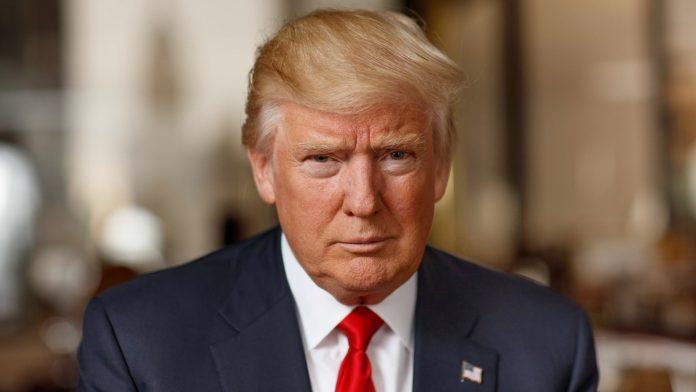By Thobile Jiwulane
South Africa, along with other countries allied with China, is poised to face scrutiny following the appointment of China-critic Marco Rubio as Donald Trump’s Secretary of State.
The hawkish Senator from Florida, Trump’s home state, does not hide his disdain for Beijing. He loathes the Communist Party of China more than China itself and actively promotes the hashtag #ExposingTheCCP on social media. A figure like Rubio is likely to advocate for a foreign policy extending beyond the ongoing US-China trade war, which is expected to intensify under Trump.
The US attitude toward China resembles a panda basking in sunlight while a cowboy encircles it, rifle aimed, oblivious to the imminent threat. This stance appears rooted more in fear of China’s growing challenge to US economic dominance than in any concrete justification.
Washington continues to target Beijing, which, in turn, avoids outright confrontation, favoring a joint development approach with the US over conflict. However, with Rubio at the helm of Trump’s foreign policy, anti-China rhetoric is likely to escalate. Rubio is considered even more hawkish than Trump himself.
South Africa, being one of the African nations closely aligned with China, might face criticism or diplomatic pressure under the incoming Trump administration. The relatively soft approach of Joe Biden, who opted for dialogue with Pretoria over punitive measures, will soon be a thing of the past.
Biden resisted Republican calls to cut South Africa off from the African Growth and Opportunity Act (AGOA)—a program allowing duty-free access to US markets for eligible African states—despite Pretoria’s failure to condemn Russia’s invasion of Ukraine and its push to bring Israel before the International Court of Justice for alleged war crimes in Gaza.
On the eve of Trump’s victory, Rubio warned South Africa against succumbing to China’s influence, particularly in its treatment of Taiwan. “The South African government is making a grave mistake by caving to Beijing’s demands. South Africa should not fall victim to Communist China’s diplomatic bullying tactics,” Rubio tweeted.
Rubio is among several conservative US lawmakers who criticized South Africa for reportedly instructing Taiwan to relocate its liaison office from Pretoria to Johannesburg—a move Taiwan resists, claiming it violates a long-standing agreement. Taiwan has operated its liaison office in Pretoria since 1998 and views the demand as unjust, particularly given that it maintains similar offices in the capitals of other BRICS countries like Russia, India, and Brazil.
While China remains silent on the matter, Taiwan insists on keeping its office in the capital. Most countries, including South Africa, adhere to the One-China Policy, recognizing Taiwan as part of China. Only one African country, eSwatini, maintains official diplomatic relations with Taiwan. Meanwhile, the US, despite officially recognizing the One-China Policy, continues to support Taiwan, even pledging to defend it against a Chinese attack.
Rubio, now officially engaged in the South Africa-Taiwan dispute, was briefed last week by Taiwanese diplomats in Washington. This adds to the already complex dynamics of US-South Africa relations, particularly given China’s significant economic ties with Pretoria. China, South Africa’s largest trade partner, surpasses the European Union and the US in trade volume.
While Rubio may attempt to leverage AGOA as a tool to pressure South Africa, he faces a tough challenge. China not only supported South Africa’s liberation struggle against apartheid but also sees the country as a gateway to Africa, where Beijing has extensive trade and development initiatives. Yet, South Africa has not fully capitalized on Chinese expertise to modernize its infrastructure and boost its economy, despite the West’s historical neglect in this area.
South Africa’s infrastructure, particularly in rural areas, has deteriorated over the past three decades. Provinces like Eastern Cape, Limpopo, and KwaZulu-Natal suffer from inadequate roads and bridges, hindering access to education, workplaces, and tourism opportunities critical for economic growth. Moreover, the country urgently needs improved rail networks and high-speed trains to connect rural provinces with urban economic hubs like Johannesburg, Cape Town, and Durban—areas where China could offer valuable assistance.
Despite these challenges, Chinese-made goods and vehicles are increasingly dominating the South African market, attracting consumers with their competitive pricing and advanced technology.
The anticipated focus of Trump’s administration on the US-China trade war might divert attention from South Africa’s ties with Russia—a contentious issue for the Biden administration. Trump’s amicable relationship with Russian President Vladimir Putin could alleviate some pressure on Pretoria regarding its Moscow ties.
In stark contrast to Biden, who pursued aggressive policies toward Russia, including arming Ukraine with ballistic missiles, Trump is expected to prioritize trade restrictions and his “America First” agenda over direct military conflict. However, Rubio’s influence is likely to steer Trump toward a tougher stance on China, which could indirectly affect South Africa.
The resignation of US Ambassador Reuben E. Brigety, announced this week, signals a transition. How quickly Trump appoints a new envoy to Pretoria will provide insights into his administration’s attitude toward South Africa. During his previous term, Trump delayed appointing an ambassador until two years before the end of his presidency.
South Africa is in for a potentially challenging period under Trump’s new term. While the former president is unpredictable, one can expect a more stringent approach toward countries that do not align with US policies, including South Africa.


